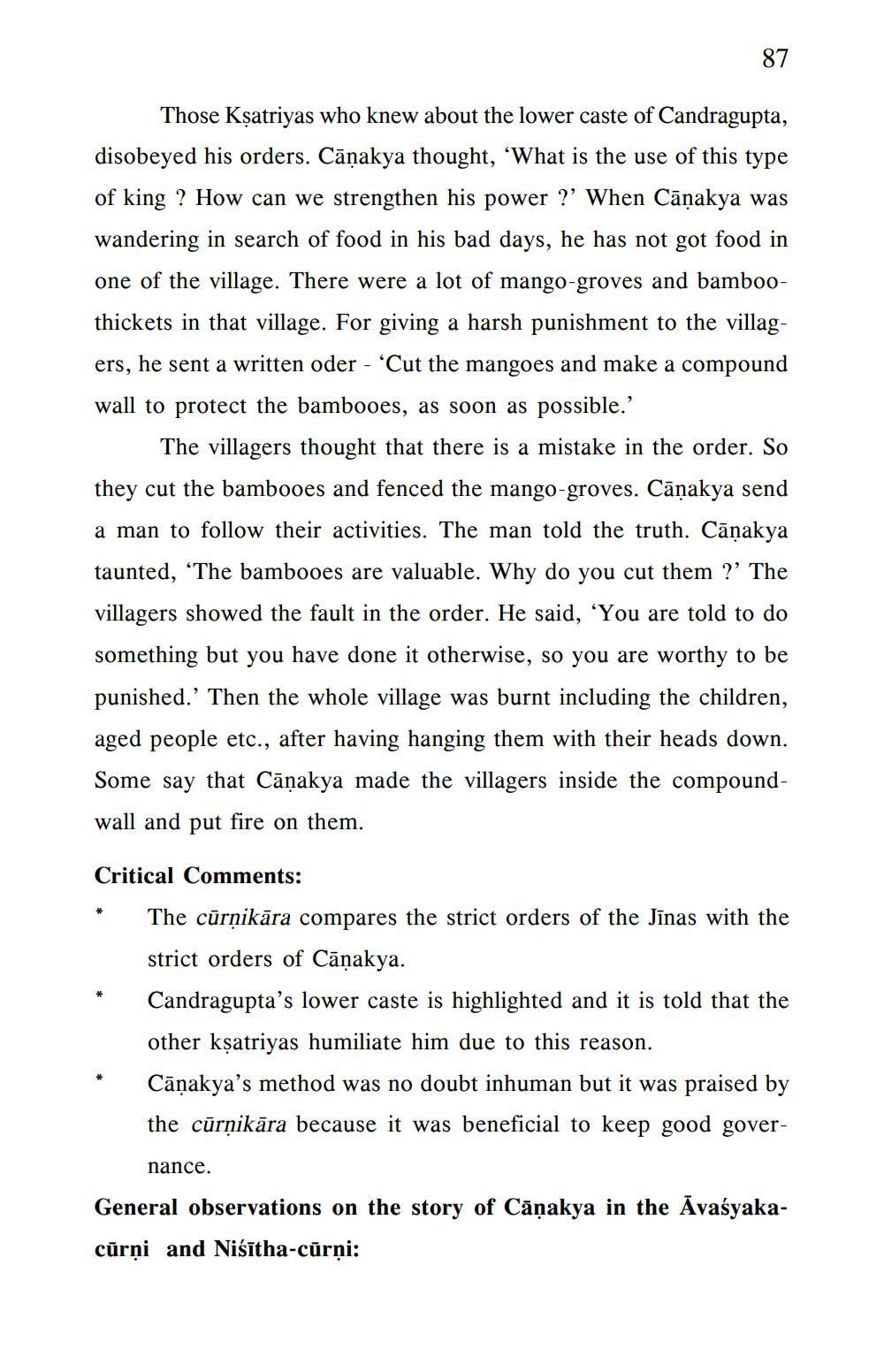________________
87
Those Ksatriyas who knew about the lower caste of Candragupta, disobeyed his orders. Cāņakya thought, 'What is the use of this type of king ? How can we strengthen his power ?' When Cāņakya was wandering in search of food in his bad days, he has not got food in one of the village. There were a lot of mango-groves and bamboothickets in that village. For giving a harsh punishment to the villagers, he sent a written oder - 'Cut the mangoes and make a compound wall to protect the bambooes, as soon as possible.'
The villagers thought that there is a mistake in the order. So they cut the bambooes and fenced the mango-groves. Cāņakya send a man to follow their activities. The man told the truth. Cānakya taunted, “The bambooes are valuable. Why do you cut them ?' The villagers showed the fault in the order. He said, 'You are told to do something but you have done it otherwise, so you are worthy to be punished.' Then the whole village was burnt including the children, aged people etc., after having hanging them with their heads down. Some say that Cāņakya made the villagers inside the compoundwall and put fire on them.
Critical Comments:
The cūrņikāra compares the strict orders of the Jīnas with the strict orders of Cāņakya. Candragupta's lower caste is highlighted and it is told that the other ksatriyas humiliate him due to this reason. Cāņakya's method was no doubt inhuman but it was praised by the cūrņikāra because it was beneficial to keep good gover
nance. General observations on the story of Cāņakya in the Āvaśyaka
cūrni and Niśītha-cūrni:




